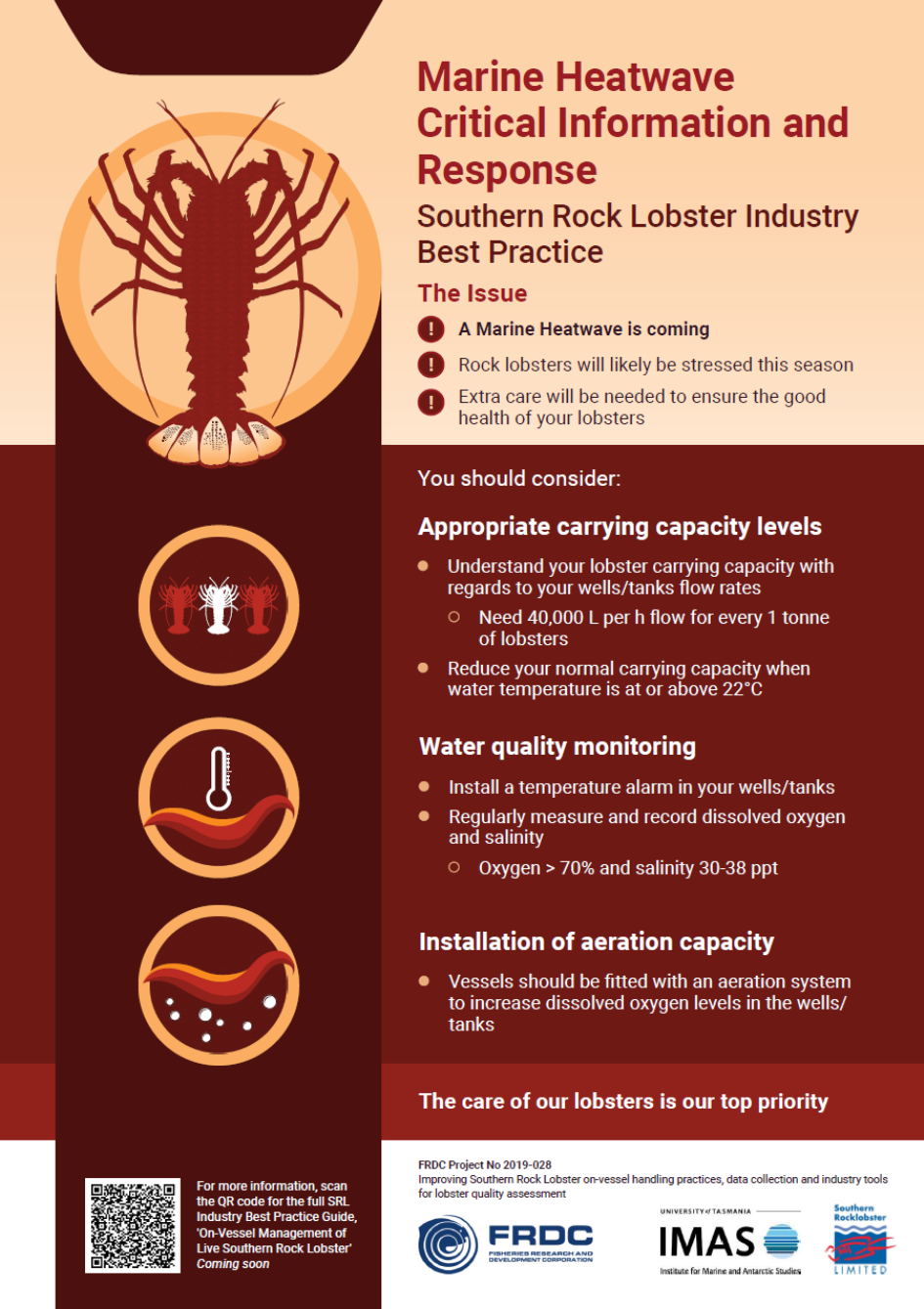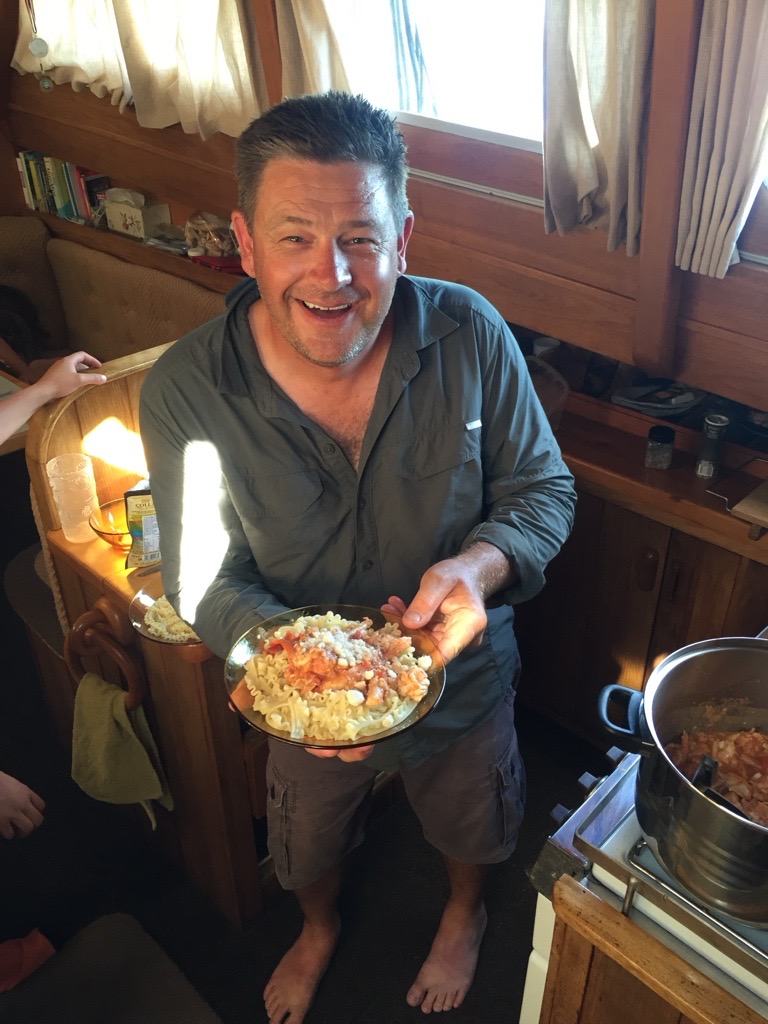FRDC’s Extension Officer Network (EON) are the quiet achievers of fishing and aquaculture as they bridge the gap between FRDC’s research and real-world impact.
Amidst the expanse of FRDC’s investment in research and development (R&D), the focus is often on generating new knowledge, technologies, and best practices. However, translating these breakthroughs into real-world impact is a crucial step that often goes unnoticed. This is where FRDC’s network of Extension Officers play a pivotal role in helping fishing and aquaculture stakeholders transition from theory to practice.
Managing Director Dr Patrick Hone says that FRDC created the Extension Officer Network in response to a genuine need expressed by fishing and aquaculture stakeholders.
“They told us that we needed a team on the ground in the regions, to help accelerate the adoption of R&D outcomes and drive practice change,” he says.
Extensive literature indicates there is a shortfall between information creation and uptake. This can be one of the greatest barriers to the implementation of new technologies within agriculture sectors, including fishing and aquaculture.
“Having myself and other Extension Officers on the ground has increased FRDC’s presence and impact with people in the fishing and aquaculture sectors,” Western Australian Extension Officer Felicity Horn explained.
“This is especially true with grass-root stakeholders who are not typically involved with FRDC’s committees or sector partnership groups,” she said.
The Extension Officer Network is managed by Jamie Allnutt, who has spent twenty-plus years of his career working in extension within the primary industries.
“FRDC has taken a progressive stance on extension and many other Research and Development Corporations are starting to see extension as an opportunity to help translate research into practice.” Jamie says.
FRDC Extension Officers are working closely with researchers, for example, the research team on FRDC-Project 2019-028 (Improving Southern Rock Lobster on-vessel handling practices, data collection and industry tools for lobster quality assessment) produced an incredible 80-page manual, comprised of the best handling practices for Southern Rock Lobster (Jasus edwardsii). Recognising that lengthy manuals are unlikely to resonate with their target audience, South Australian Extension Officer Nathan Bicknell and Tasmanian Extension Officer David Maynard, identified a series of user-friendly solutions to translate complex findings into tangible actions and key points for fishers.

A video narrated by an experienced fisher is also being created to share these project outcomes. This will provide a compelling medium to help summarise key points and share them via social media channels. These types of innovative approaches promise to empower fishers with the information they need to make informed decisions and optimise their operations.

Northern Territory Extension Officer Lauren Thornton believes researchers are surprised by the appetite of fishing and aquaculture stakeholders to receive and learn new information that is relevant to them.
“My work has helped researchers think differently about how they present research and communicate it to ensure their findings are accessible and actionable.”
The work of the Extension Officers extends far beyond knowledge dissemination. David Maynard discussed his recent extension work with Seahorse Australia, a small aquaculture business, struggling to secure new broodstock without their own dive team.
“Leave it with me,” David said to Seahorse Australia Director Rachelle Hawkins. Taking the matter into his own hands, David tapped into his network, reaching out to Salmon Tasmania that same day.
His efforts paid off swiftly, as he secured a commitment from Salmon Tasmania to assist Seahorse Australia in collecting seahorses. This unexpected breakthrough brought immense relief to Rachelle, who had been grappling with this issue for an extended period without a viable solution.
David received a positive email from Rachelle, shortly after the arrangement had been agreed:
‘Just a quick message to say thanks for the incredible help you’ve been [David], in sourcing some new breeding stock for our farm. I didn’t in my wildest dreams expect you to come back with a solution to my problem in less than a day.’
So, thanks a million. Really appreciate it and really appreciate your contacts in the industry.’
A new approach
The increasing complexity of fishing and aquaculture challenges underscores the importance of the Network. Issues such as climate change, resource management sharing and sustainability, require a holistic approach that draws upon the expertise of diverse stakeholders. Extension Officers play a central and independent role in bringing disparate groups together, ensuring that all voices are heard and that solutions are developed collaboratively.
This year, Queensland Extension Officer Steve Eayrs with the help of fishers and Extension Officers Lauren Thornton (Northern Territory) and Matt Jones (Victoria), hosted one-day trawling sector workshops in Cairns, Townsville, Urangan and Mooloolaba. These complimentary workshops provided a valuable platform for fishers to learn about the latest developments in fishery management, sustainability initiatives and safety regulations.
“The aim was simple.” Steve says when talking about his recent Trawl workshops held throughout Queensland. We wanted to encourage discussion of issues and share concerns in a safe and collaborative environment, as well as fostering relationships between stakeholder groups within the sector," he added.
The workshops featured a diverse range of speakers including representatives from industry associations, government agencies and research institutions.
"Staff from the Queensland Department of Agriculture and Fisheries (QDAF) featured prominently at all workshops to present on a range of topics and provide fishers with a direct channel to address concerns and seek clarification on various matters of concern."
Boat owner and skipper Neil Mogensen was thrilled that the workshop provided information to keep everyone in the loop which he says is difficult in a time-constrained sector that operates remotely and largely in isolation from one another.
“It allowed key people in the workshop to end their presentations with ‘Here’s a face and a phone number’, creating that visible contact. That’s gold for the industry.” Neil said.
Marathon, not a sprint
“Creating meaningful and impactful change is a marathon, not a sprint,” Jamie noted.
“The EON are continuing to build awareness and trust with stakeholders, understand fishers' operations and communicate solutions – all crucial steps in the three-year project.”

Jamie said that implementing change can be challenging and that the Network emphasises the importance of providing hands-on support to key stakeholders throughout the journey.
“Measuring the impact of EON’s work requires patience and understanding as not all positive changes will be immediately quantifiable,”
“The EON's impact may not always garner headlines, but its contributions are the threads that weave together the diversity of people representing Australia's fishing and aquaculture sectors. Extension Officers are quiet achievers who work independently behind the scenes to ensure more connected fishing and aquaculture sectors can take advantage of FRDC’s research and development and translate it into real-world benefits for our stakeholders.”
You can find out more about the Extension Officer Network and get in contact here: https://www.frdc.com.au/staff/extension-officer-network





